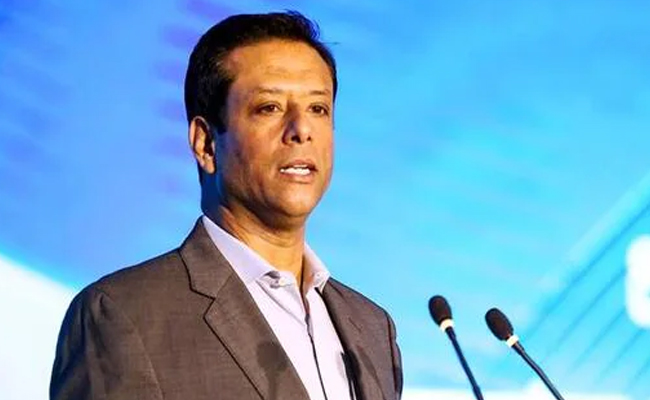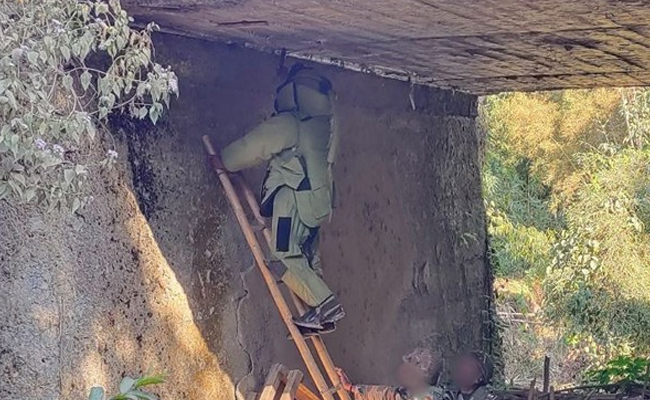Srinagar, June 29: Incessant rains during the last two days have swollen rivers, streams and other water bodies in the Kashmir Valley while flood was declared in south Kashmir areas on Friday, an official said. The Amarnath Yatra was also suspended.
Chief Engineer, Irrigation and Flood Control, M.M. Shahnawaz, in a statement, said: "At 6 p.m. today (Friday), Jhelum River had crossed the flood declaration level of 21 feet at Sangam in Anantnag district.
"People living in low-lying areas of south Kashmir, especially along the embankments of River Jhelum and other streams are advised to remain vigilant."
Meanwhile, the Amarnath Yatra was suspended on Friday with no pilgrim was allowed to move towards the cave Ssrine from either the Baltal base camp in north Kashmir or Pahalgam base camp in south Kashmir.
Authorities said all Yatris are safely lodged inside the two base camps.
Let the Truth be known. If you read VB and like VB, please be a VB Supporter and Help us deliver the Truth to one and all.
Washington (PTI): Sanjeeb Wazed, son of deposed Bangladesh prime minister Sheikh Hasina, has accused the Muhammad Yunus led interim government of “weaponising the judiciary” for carrying out a “political witch hunt” against the Awami League leadership.
Wazed's allegations, as a long post on X, came two days after the interim government on Monday said it has sent a diplomatic note to New Delhi seeking Hasina's extradition from India.
Hasina, 77, has been living in India since August 5 when she fled Bangladesh following a massive student-led protest that toppled her Awami League's (AL) 16-year regime.
Bangladesh's International Crimes Tribunal (ICT) has issued arrest warrants for Hasina and several former Cabinet ministers, advisers, and military and civil officials for “crimes against humanity and genocide.”
“The judges and prosecutors appointed by unelected Yunus led regime to conduct farcical trial process through International Crimes Tribunal makes it a political witch hunt that forsakes justice and marks another ongoing onslaught to persecute Awami League leadership,” Wazed said in his post on Tuesday.
An IT entrepreneur, Wazed is based in the US and has been an ICT adviser in Hasina's government.
“The kangaroo tribunal and subsequent request for extradition comes while hundreds of leaders and activists are extrajudicially killed, framing of outrageous murder charges, illegal incarceration of thousands by law enforcement and violent attacks including looting vandalism and arson going on with impunity everyday fuelled by denial of the regime,” he added.
On Monday, India confirmed receiving the 'note verbale' or diplomatic communication from the Bangladesh high commission in New Delhi but refrained from commenting on it.
Under the provisions of the India-Bangladesh extradition treaty, extradition may be refused if the offence is one of a “political character.”
Bangladesh's de facto foreign minister Touhid Hossain said Dhaka wants Hasina back to face the judicial process.
Wazed further accused that the chief prosecutor of ICT Tribunal Tajul Islam appointed by Yunus regime on December 22, despite proven records of defending war criminals, “reportedly spread deliberate disinformation campaign” against Hasina by claiming that Interpol issued red notice against her, and termed it as “a desperate bid to extradite her and hold farcical trial to serve the interest of Dr Yunus.”
“But the very prosecutor later altered his statement following media exposure of the outright lie and now officially sent a request to India for the extradition,” Hasina's son said.
“We reiterate our position that every single incident of human rights violation between July and August needs to be investigated in a free and fair manner but the Yunus led regime weaponised the judiciary, and we express no confidence in the justice system,” he alleged.
Last month, in an address to the nation on the completion of 100 days of the interim government, Yunus said Bangladesh will seek Hasina's extradition. “We must ensure justice in every killing… We will also ask India to send back fallen autocrat Sheikh Hasina,” he had said then.
Yunus, who assumed office on August 8, claimed that about 1,500 people, including students and workers, were killed while 19,931 others were wounded during the protest against the Hasina government.
India has expressed concern as there have been a spate of attacks on minorities including on the Hindu community in Bangladesh in the last few months.
In recent weeks, Hasina has accused the Yunus-led interim government of perpetrating “genocide” and failing to protect minorities, especially Hindus, since her ouster.
Foreign Secretary Vikram Misri visited Dhaka two weeks back during which he conveyed to the Bangladeshi side India's concerns, especially those related to the safety and welfare of minorities.





